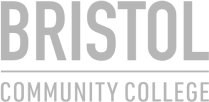Skip to main content  Foundational
Foundational
Knowledge:
- Recognizing the context and focus of ARE initiatives
- Noticing and understanding the reality and impact of achieving racial equity (ARE) in the workplace
- Taking stock of current knowledge and understanding of ARE
- Understanding implicit bias related to racial inequities and its influence in higher education
- Understanding microaggressions related to racial inequities and their impact in higher education
Skills:
- Scanning for and recognizing potential barriers to ARE
- Knowing when to be deliberate and intentional about ARE efforts
- Seeking different perspectives on ARE issues
- Maintaining a learner focus and being open to new information about ARE
- Identifying dissonance and discrepancy as opportunities for deeper inquiry into ARE
- Asking critical questions: What is going on here? For whom? Is this what is expected? What do I/we already know about this? How do I/we know this? What do I/we need to find out? What is a good question I/we should ask? Is this good? Should I/we be concerned? Why?
Actions:
- Using existing tools to gather data on ARE
- Identifying and understanding the problems or issues related to ARE, including implicit bias and microaggressions as structural/ systemic barriers and obstacles.
- Recognizing the need to take a closer look at specific ARE matters, including implicit bias and microaggressions as structural/ systemic barriers and obstacles
 Advanced
Advanced
Knowledge:
- Being clear about what needs to change and what doesn’t in order to achieve ARE in the workplace
- Clarifying the identifying problems or issues we want to solve in pursuit of ARE
- Having a strong and concrete understanding of what ARE looks like at all levels of the university (e.g. in the classroom, departments, and colleges) and throughout the consortium
- Knowing how we will recognize progress, including monitoring and assessing changes in the prevalence and impact of implicit bias and microaggressions as structural/ systemic barriers and obstacles that may include racial trauma in higher education
Skills:
- Continuous examination of the data for evidence of what is or is not working for all learners, including the identification of patterns and trends related to the impacts of implicit bias and microaggressions as structural/ systemic barriers and obstacles to ARE in higher education
- Knowing how to use systems, processes, and tools in place to track progress and impact on achieving ARE
- Transparently managing progress; includes establishing protocols and strategies to address structural/ systemic barriers and obstacles to ARE in higher education
- Identifying where we have the capability and capacity to improve in order to achieve racial equity
- Identifying what external expertise we might need, including seeking guidance and support from specialists in data gathering; evaluating progress; identifying areas of concern; curriculum development; and/or training for employees at all levels of the consortium
- Checking in on learners’ progress in understanding, learning from, and contributing to the advancement of ARE initiatives
- Identifying and acquiring the required support and resources needed to effectively work towards ARE in higher education
- Asking ourselves critical questions: What actions can we take to ensure better progress and outcomes for more of our learners? Which of our learners are or are not benefiting from our efforts? Are any of our efforts counterproductive to our goal of achieving racial equity? Are we communicating our current condition, our goals, and our action plans clearly? What strengths do we have to build on?
Actions:
- Being determined to achieve equitable progress and outcomes for all learners, with a specific focus on countering the impacts of implicit bias and microaggressions as structural/ systemic barriers and obstacles that may include racial trauma
- Clearly identifying, communicating, and pursuing the actions we need to take and why, ensuring that our strategies and interventions directly address any structural/ systemic barriers to achieving racial equity
- Setting up and utilizing feedback channels to gather input from staff and instructors
- Ensuring all learners have equitable access to support and opportunities to learn, recognizing that addressing implicit bias and microaggressions as structural/ systemic barriers and obstacles that may include racial trauma is crucial for creating an inclusive and fair educational environment
- Ensuring all university/consortium employees become learners making consistent progress towards achieving ARE within higher education





